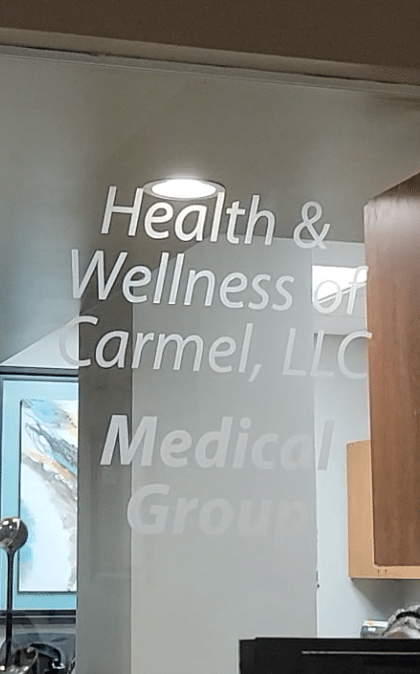Colon Cancer
We believe in empowering you to make informed decisions about your treatment. You’re an active participant in your healing journey, and we encourage you to explore the benefits of alternative therapies, ask questions, and customize your treatment plan.
About Colon Cancer
Colorectal cancer is indeed a significant health concern worldwide. It typically arises from the inner lining of the large intestine, which is comprised of the colon and the rectum. The large intestine’s primary role in the digestive system is to absorb water and electrolytes from digested food and move the solid waste out of the body.
Cancers in the colon and rectum usually begin as a growth on the inner lining of the colon or rectum, called a polyp. Not all polyps become cancerous, but certain types, like adenomatous polyps (adenomas), have a higher risk of turning into
cancer.



Factors that can increase your risk
Factors that can increase the risk of colorectal cancer include:
Age: Most people who develop colorectal cancer are over 50, but it can occur in younger people.
Family history: Having family members with colorectal cancer increases the risk.
Personal history: People who have had colorectal cancer before, or who have had adenomatous polyps, are at a higher risk.
Genetic alterations: Changes in certain genes (such as familial adenomatous polyposis or Lynch syndrome) can increase the risk.
Diet: A diet high in red meats and processed meats can increase colorectal cancer risk.
Lifestyle factors: Lack of regular physical activity, obesity, alcohol consumption, and tobacco use may increase the risk.
Chronic inflammatory diseases of the colon, such as ulcerative colitis and Crohn’s disease, can increase the risk.
Screening for Colon Cancer
Screening is vital for early detection and prevention of colorectal cancer. Several screening tests are used, including colonoscopy, sigmoidoscopy, and stool-based tests. If colorectal cancer is suspected, a biopsy can confirm the diagnosis. Imaging tests like CT scans, MRIs, and PET scans can help determine the extent (stage) of the cancer.
Traditional Treatment of Colon Cancer
Traditional treatment depends on the stage and may involve surgery, chemotherapy, radiation therapy, targeted therapy, or a combination of these methods. In some cases, when detected early, polyps can be removed before they become cancerous, effectively preventing colorectal cancer. Research continues to improve the understanding of colorectal cancer and leads to better prevention, detection, and treatment strategies. If you or someone you
know is dealing with colorectal cancer, it is crucial to talk to medical professionals about the best care plan.
How We Approach Colon Cancer
At Health and Wellness of Carmel surgery is an option. At your first office visit we will obtain extensive labs to determine your overall health status including specific tumor markers, germ load, immune status, mold status, Nagalase, circulating tumor cell level, thermal graphic evaluation/heat measurement and the option of a complete genetic analysis of the tumor characteristics based upon the circulating tumor cells and even test the tumor susceptibility to natural treatments including hormone therapy, hyperthermia, and diet.
Tumor shrinkage can be achieved through localized hyperthermia, total body hyperthermia, mistletoe, SOT, IST, ATA, VAXO Q RE and targeted nutrient therapy. In most cases we recommend surgical excision of the tumor. This is removal of the entire tumor making sure that the margins are clear. We do feel that oncologists have an important role to play for most advanced colon cancer. Newer types of chemotherapy including targeted therapy can have a profound impact on the tumor with minimal side effects. Our treatments can nicely complement these treatments and our goal is to help achieve long-term remission.
Additional Steps
All our clients will be educated on the 20 actions to reverse chronic degenerative disease. Our 1-year plan is that the patient will agree that their cancer was a wake-up call which forced them to enter a path to gain optimal wellness.
To learn more about how we can support you through this diagnosis, give us a call or fill out our convenient Contact Us to schedule a full consultation.
Services Used to Address Colon Cancer
- Circulating Tumor Tests
- Far Infrared Heat Sauna
- Full Laboratory
- Holistic Cancer Treatments
- Immune Support
- IV Chelation Therapy
- IV Heavy Metal Detox Therapy
- IV Hydration Therapy
- IV Immunity Boost Therapy
- IV Iron Therapy
- IV Nutritional Therapy
- IV Therapy for Cancer
- IV Vitamin Therapy
- Lyme Disease Chronic Treatment
- Lyme Disease SOT Therapy
- Mold Allergy Treatment
- Mold Poisoning Treatment
- Mold Toxicity Treatment
- Nutrition Consultations
- Personalized Cancer Testing
- Red Light Therapy
- Regenerative Medicine Treatments
- RGCC Cancer Sensitivity Test
- Sono and Photo Dynamic Therapy
- Supportive Oligonucleotide Technique (SOT)
- Thermography Screening
- Vaxo-Q-Re
Request an Appointment With Our Team of Experts
Question or Comment? Please fill out the contact form and one of our office team members will be back in touch within one business day. For immediate assistance, please call our office at (317) 663-7123. Thank you so much!









